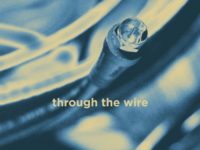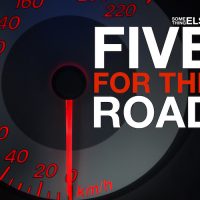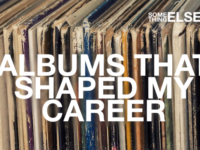Drummer Jerry Marotta has kept the beat for numerous groups over the course of a professional career stretching more than 40 years. He was a part of Orleans when the band had its biggest hit, “Still the One” in 1976, but when founding member John Hall left the band, Marotta began working with Peter Gabriel.
During the next three decades, in addition to recording and touring with Gabriel, he worked with Daryl Hall and John Oates, Tears for Fears, Joan Armatrading, Paul McCartney, Sarah McLachlan, John Mayer, Indigo Girls and numerous others. Today he owns Jersville Studios and also runs another studio, while still finding time to make music with several artists, including the Steely Dan tribute band Reelin’ In the Years and the Security Project, which reimagines the music of Peter Gabriel.
We asked Jerry Marotta to share the albums that shaped his career:
JAMES TAYLOR – SWEET BABY JAMES (1970): First, there are so many. When I was 10, I was learning to play drums: James Brown, Motown, in general – I was a big Motown fan – Sam and Dave, Marvin Gaye – but it wasn’t long after that I remember listening to Sweet Baby James. Russ Kunkel was using brushes like he was playing with sticks. That really influenced my playing a lot. His feel, the approach.
JOE COCKER – MAD DOGS AND ENGLISHMEN (1970): That band – Jim Keltner, Jim Gordon, Chuck Blackwell (drummers) and Leon Russell. It was an unbelievable dog-and-pony show.
PETER GABRIEL – PETER GABRIEL: CAR (1977): Somebody gave me a call in ’76 or ’77 about an English singer who was looking for a drummer. So I listened to the first Peter Gabriel record. All of the influences [that Marotta grew up on], there was none of that in the Peter Gabriel record: No funk, grease, R&B, soul. But then I became aware of that whole other thing, the English prog influenced by classical and Celtic.
“Moribund the Burgermeister,” “Waiting for the Big One” – that stuff was really foreign to me. It was a challenge, that’s part of why I took it. Plus the leader of the band I was in, Orleans, had quit. They were my favorite band and I needed a job. This Peter Gabriel thing – they offered it and it was a challenge. It paid well, I got to go to Europe. I ended up working for Peter for 8 or 10 years. My perception changed and broadened. I didn’t know who Genesis was. It opened my eyes to different music.
- Gregory Porter, Samara Joy, John Paul McGee + Others: 2023’s Seasonal Sounds - November 30, 2023
- John McLaughlin’s Shakti – ‘This Moment’ (2023) - July 14, 2023
- Rolling Stones – ‘GRRR Live!’ (2023) - March 30, 2023




